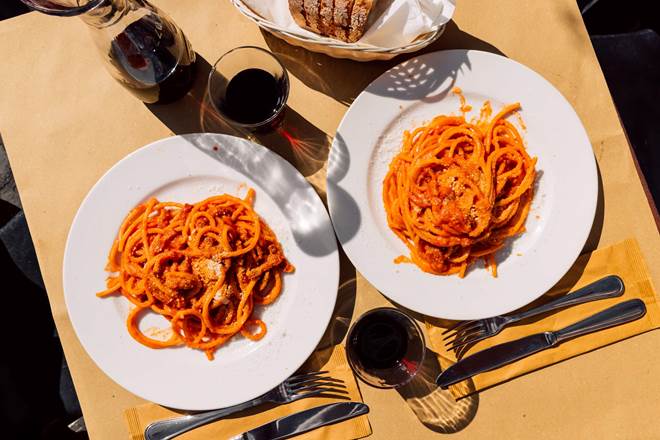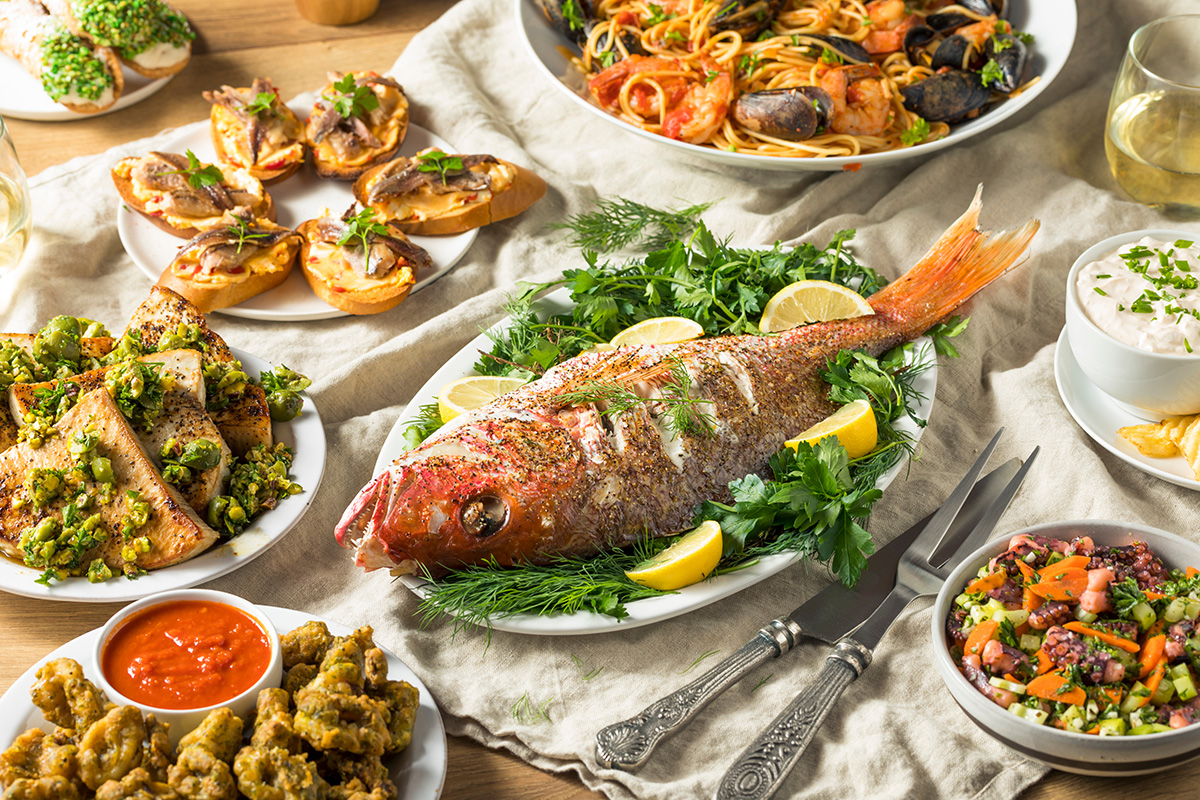Discover the Culinary Delights of Italy's Food Tours
Italy, a country renowned for its rich history and cultural heritage, is also celebrated for its diverse and delectable cuisine.
The essence of Italian food lies not only in its flavors but also in the stories and traditions that have shaped it over centuries.
Embarking on a food tour in Italy is an immersive experience that offers more than just a taste of local dishes; it provides a deep dive into the regional specialties, artisanal craftsmanship, and vibrant culinary traditions that define this gastronomic paradise.
The Art of Regional Cuisine: A Journey Across Italy
Italy's cuisine is highly regional, with each area offering unique flavors and dishes that reflect local ingredients, traditions, and history. Food tours across Italy allow travelers to explore this diversity firsthand, experiencing the culinary treasures of each region.
Northern Italy: Rich and Hearty Flavors

Northern Italy is known for its rich and hearty cuisine, characterized by the use of butter, cream, and cheese. Regions like Emilia-Romagna, Lombardy, and Piedmont are famous for their contributions to Italian gastronomy.
In Emilia-Romagna, one can savor the creamy delight of parmigiano-reggiano and the savory goodness of prosciutto di Parma. A visit to Lombardy might include tasting the world-renowned risotto alla Milanese, while Piedmont offers the luxurious bagna càuda, a warm dip made with anchovies and garlic.
Truffle hunting in Piedmont is a unique culinary experience, allowing participants to discover the prized white truffles of Alba. This region is also home to some of Italy's finest wines, including Barolo and Barbaresco, which are integral to the culinary tours in the area.
Central Italy: The Heart of Italian Tradition
 Central Italy, including regions such as Tuscany, Umbria, and Lazio, is the heart of traditional Italian cooking. Tuscany is celebrated for its rustic dishes like ribollita, a hearty soup made with bread and vegetables, and bistecca alla Fiorentina, a thick-cut steak grilled to perfection.
Central Italy, including regions such as Tuscany, Umbria, and Lazio, is the heart of traditional Italian cooking. Tuscany is celebrated for its rustic dishes like ribollita, a hearty soup made with bread and vegetables, and bistecca alla Fiorentina, a thick-cut steak grilled to perfection.
Tuscany's rolling hills and vineyards also make it a haven for wine enthusiasts, with tours often including tastings of Chianti and Brunello di Montalcino.
Umbria, known as the "green heart of Italy," offers earthy flavors with dishes like torta al testo (a traditional flatbread) and porchetta (roast pork). Food tours in Umbria often include visits to olive groves and cheese farms, providing insights into the artisanal production of olive oil and pecorino cheese.
Lazio, the region surrounding Rome, is famous for classic dishes like cacio e pepe and carbonara, where simplicity meets sublime flavor. A culinary tour in Lazio offers the chance to explore the bustling markets of Rome, sample street food, and dine in family-run trattorias that preserve traditional Roman recipes.
Southern Italy and the Islands: Bold and Vibrant Tastes
Southern Italy, encompassing regions such as Campania, Puglia, Calabria, and Sicily, is known for its bold and vibrant flavors. Campania, home to Naples, is the birthplace of pizza. A food tour here would be incomplete without tasting the iconic Neapolitan pizza, with its thin crust, fresh tomatoes, mozzarella, and basil. The Amalfi Coast, part of Campania, is famous for its lemons, which are used to produce the exquisite limoncello liqueur.
Puglia, often referred to as the "heel of Italy's boot," is known for its olive oil, durum wheat pasta, and seafood. Dishes like orecchiette con cime di rapa (pasta with turnip tops) showcase the region's agricultural bounty. The trulli houses in the town of Alberobello and the historic city of Lecce are popular stops on culinary tours.
Sicily offers a fusion of flavors influenced by its diverse history. From the sweet cannoli and cassata to savory dishes like arancini (stuffed rice balls) and caponata (a sweet and sour eggplant dish), Sicilian cuisine is a feast for the senses. The island's markets, such as Palermo's Ballarò Market, are vibrant centers of culinary exploration.
The Experience of Artisanal Craftsmanship
 Italy's food culture is deeply rooted in artisanal craftsmanship. Many food tours provide opportunities to visit small producers and learn about traditional methods of food production, offering a deeper appreciation for the quality and authenticity of Italian cuisine.
Italy's food culture is deeply rooted in artisanal craftsmanship. Many food tours provide opportunities to visit small producers and learn about traditional methods of food production, offering a deeper appreciation for the quality and authenticity of Italian cuisine.
Cheese and Charcuterie
Italy boasts a wide variety of cheeses and cured meats, each with its own distinctive characteristics.
Tours often include visits to dairy farms where travelers can see the production of cheeses like gorgonzola, mozzarella di bufala, and pecorino. Similarly, visits to prosciutto factories and salumerias highlight the traditional curing processes that make Italian charcuterie renowned worldwide.
Wine and Olive Oil
Wine and olive oil are integral to Italian cuisine. Wine tours in regions like Tuscany, Piedmont, and Veneto allow travelers to visit vineyards and cellars, learning about the winemaking process and tasting some of Italy's finest vintages.
Olive oil tastings in regions like Puglia and Umbria offer a similar experience, showcasing the nuances of flavor and quality in Italian olive oils.
Pasta and Pastries
The art of pasta-making is another highlight of Italian food tours. Workshops and demonstrations provide hands-on experience in crafting various types of pasta, from delicate ravioli to robust pappardelle.
Similarly, pastry-making classes reveal the secrets behind Italian desserts like tiramisu, panna cotta, and sfogliatella.
Beyond Food: Cultural and Historical Insights
 Italian food tours often go beyond culinary experiences, offering insights into the cultural and historical contexts that shape the cuisine.
Italian food tours often go beyond culinary experiences, offering insights into the cultural and historical contexts that shape the cuisine.
These tours provide a comprehensive understanding of the Italian way of life, where food is not just sustenance but a reflection of regional identity, history, and tradition.
Culinary Heritage and Festivals
Many regions in Italy celebrate their culinary heritage through festivals and events. Participating in these festivals, such as the White Truffle Festival in Alba or the Lemon Festival in Sorrento, allows travelers to experience local traditions, folklore, and community spirit.
These festivals are often accompanied by food markets, cooking demonstrations, and tastings.
Architectural and Natural Beauty
Food tours in Italy are often intertwined with visits to historical sites, picturesque landscapes, and architectural marvels.
Whether exploring the ancient ruins of Rome, the Renaissance art of Florence, or the coastal beauty of Cinque Terre, these tours offer a rich tapestry of experiences that enhance the culinary journey.
Local Markets and Food Shopping
Visiting local markets is an integral part of Italian food tours. Markets like Florence's Mercato Centrale or Bologna's Mercato di Mezzo provide an authentic glimpse into daily life, showcasing the freshest produce, meats, cheeses, and other regional specialties.
These markets are vibrant hubs of activity, where travelers can interact with local vendors, sample artisanal products, and even take home some culinary souvenirs.
Conclusion
Embarking on a food tour in Italy is more than just a culinary adventure; it is an exploration of the country's soul. Each dish tells a story, each region offers a unique perspective, and each artisan contributes to the rich tapestry of Italian cuisine.
Whether you are savoring a simple plate of pasta, indulging in a decadent dessert, or sipping on a fine wine, Italy's food tours provide an unparalleled opportunity to connect with the culture, history, and people of this remarkable country.
By immersing yourself in the culinary delights of Italy, you not only satisfy your palate but also gain a deeper appreciation for the traditions and artistry that define this gastronomic landscape. So, whether you're a seasoned foodie or a curious traveler, Italy's food tours offer a journey of discovery that will leave a lasting impression and a taste for more.




























































